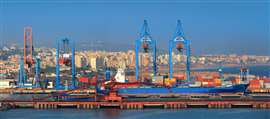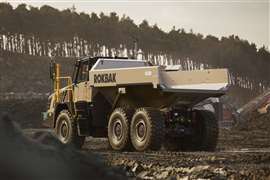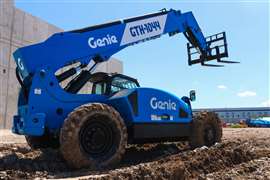Read this article in Français Deutsch Italiano Português Español
India PM recognises 3 new port infrastructure projects
18 January 2024
Indian Prime Minister Narendra Modi helped dedicate a trio of completed construction projects on government-owned corporate properties
 India’s Visakhapatnam port, which is the second largest port by cargo-handled in the country. (Photo credit: Adobe Stock)
India’s Visakhapatnam port, which is the second largest port by cargo-handled in the country. (Photo credit: Adobe Stock)
Modi recognised a new dry dock and international ship-repair facility at Cochin Shipyard and a liquefied petroleum gas (LPG) site in Puthuvypeen as vital to the country’s transformation and growth of its ports and shipping industry.
“It not only allows large vessels to dock but also facilitates shipbuilding and repair work, reducing reliance on foreign countries and saving foreign exchange,” he said to media on 17 January.
Combined, the Kochi, Kerala, facilities cost Rs 4,000 crore (US$534 million), and represent a small portion of decades’ worth of investment for India. The country has committed to spend $82 billion on port projects by 2035.
The ship-repair facility, Modi said, makes Kochi the largest vessel overhaul centre in India and Asia.
The LPG site, Modi said, will service Kochi, Coimbatore, Erode, Salem, Calicut, Madurai, and Trichy.
India’s shipping industry on the rise
According to data from the Indian government, cargo traffic at major Indian ports saw substantial growth over the last decade. In 2013, according to data reports, the country’s handling capacity (in millions of tonnes) was 744.91. In 2022, India’s ports logged a handling capacity of 1,597.59.
From 2013 to 2022, the handling capacity increased annually, as did overall cargo traffic.
Addressing media, Modi heralded improvement in efficiency that projects like those in Kochi emphasised. He noted that, compared to ten years ago, ships in Indian harbours today need less time to port and unload. It’s a quality that has put India near the top in terms of ship-turnaround time.
“Projects like shipbuilding, ship-repairing, and the LPG import terminal will also give momentum to development in Kerala and the southern region of the country,” said Modi.
The Indian government anticipates the three new projects will help the country’s ports double turnover within the next four years.
STAY CONNECTED


Receive the information you need when you need it through our world-leading magazines, newsletters and daily briefings.
CONNECT WITH THE TEAM










